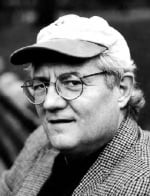Authors From HIGHBRIDGE AUDIO
Stephen E. Ambrose
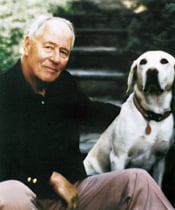
Stephen E. Ambrose is a patriot, arguably the most brilliant, compelling and least abashed patriot publishing history in this country today. He’s also a partisan of the spoken word.
“I’m a great fan of audiobooks,” said Ambrose, who had most recently listened to a Shelby Foote Civil War history. “I do a lot of driving across the country, and I always listen to a book. Reading a book on a computer is going to ruin your eyes. I think audiobooks are a leap forward.”
Mark Anderson
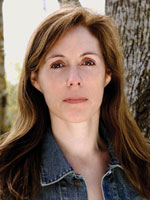
Shakespeare may have been "a poor player who struts and frets his hour upon the stage," but he was no poet. Not according to New England journalist Mark Anderson. He contends that a profligate nobleman wrote the plays and poems attributed to the so-called Bard of Avon. Facts for his book on the subject, "SHAKESPEARE” BY ANOTHER NAME, now a HighBridge audio, took him a decade to unearth.
Dave Barry
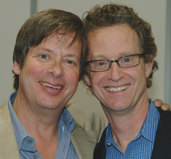
Dave Barry says he was ecstatic when he heard that Jim Dale had agreed to narrate the audio of PETER AND THE STARCATCHERS, the prequel to Peter Pan, which Barry co-authored.
Elizabeth Berg
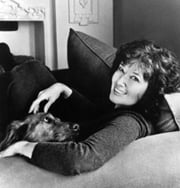
Elizabeth Berg, known for her life-affirming books about people in crisis, likes to listen to audiobooks with one exception: her own works. “The truth is I don’t listen to my own tapes because it’s hard to hear someone read your work in a way that you wouldn’t. So with my own work I tend to just listen a little to hear what the voice is like.”
Michael Chabon
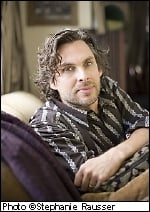
When Michael Chabon was about 8 or 10, he knew he wanted to be a writer. “I wanted to write about kids, about poor kids, like me.” In those early days, the author of WONDER BOYS and THE AMAZING ADVENTURES OF KAVALIER & CLAY (2001 Pulitzer Prize for fiction) especially enjoyed reading Tolkien, Lloyd Alexander, and comic books. As an adult writer, Chabon says, “I wanted to write the kind of book I would have liked when I was 11 years old . . . my secondary goal was to write something for my children.” His first children’s book combines elements of baseball, folklore, myth, and the wildly original inhabitants of his vivid inner world. “SUMMERLAND is a fantasy, based in the contemporary world and set against a background of American myth. The idea came to me at 10 or 11 to try to write a fantasy with a backdrop in American mythology . . . which is what I try to do in SUMMERLAND, 26 years later.”
Tracy Chevalier
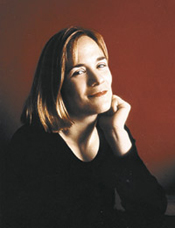
Some authors love rereading their work. Some, such as Tracy Chevalier, do not. “I don’t write my books for myself to read; I write them for other people to read. So I tend not to revisit a book when it’s done,” says Chevalier on the telephone from London, where she lives with her family. “It’s like seeing yourself in a video from behind when you’re not used to it. You say, ‘Oh my God, do my legs really splay apart like that? My walk is so goofy!’”
Stephen Colbert

It’s impossible to get Stephen Colbert to talk much about audiobooks. He wants to talk about himself instead. This would be in horrid taste if Stephen Colbert were himself, but he’s not. Or is he?
Zizou Corder

The biggest secret about Zizou Corder, the author of LIONBOY, is that she is actually a lizard. When mother-daughter team Louisa Young and 10-year-old Isabel Adomakoh Young pictured their two names on the cover of their children’s book and audiobook, they thought the combined names would be too long. They turned to their pet lizard, Zizou, attached the last name Corder, and a pseudonym was born.
Jasper Fforde

Jasper Fforde, author of the bestselling Thursday Next series, has created a whimsical world in which literature is preferred to rock and roll and tickets sell out for an audience-interactive Richard III. AudioFile asked Fforde where the idea began. "I thought, ‘What would happen if Jane Eyre was kidnapped out of her story?’ That was the starting off point. I would think up a strange idea or notion and run with it to its magical conclusion." The idea of a dodo as a reengineered pet of choice came when Fforde wondered if people could have home cloning kits. "Then I thought, why stop at dodos? Why not mammoths and Neanderthals? And the whole dodo idea became a rich theme of silliness to be mined."
Jonathan Franzen
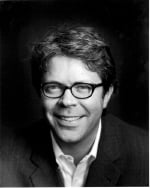
When Jonathan Franzen spent Memorial Day weekend of 2006 recording his memoir THE DISCOMFORT ZONE, he learned that “there’s a sweet two hours about four hours into it when everything is working.” Before that, your body is stiff and your voice stilted; afterward, squirming in the tiny recording booth, “you’re going ‘let me out!’” But make no mistake, he loved the experience, and is impatient to repeat it just as soon as he writes another book.
Neil Gaiman
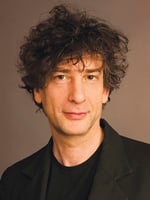
Technically, the first person to hear Neil Gaiman’s new novel, THE OCEAN AT THE END OF THE LANE, was his wife, musician Amanda Palmer. Gaiman handwrote the first draft of the novel while Palmer was far away in Australia.
Seth Godin

Narration isn’t a high-risk profession, so listeners may be concerned to hear Seth Godin lament at the end of his recent audiobook, THE BIG MOO, that he’s hoarse and having trouble breathing.
Robert Goolrick
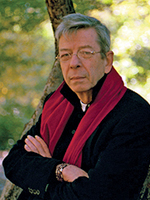
“Audiobooks are remarkable. For me, they’re a way to hear another interpretation of my inner voice.” So says novelist Robert Goolrick, author of the critically acclaimed New York Times #1 bestselling novel A RELIABLE WIFE.
Adam Gopnik

Charlie Ravioli didn’t much care for Adam Gopnik’s previous book, PARIS TO THE MOON. Ravioli, the too busy imaginary friend of Gopnik’s daughter, Olivia, voiced his disapproval in an essay in Gopnik’s new book, THROUGH THE CHILDREN’S GATE: A HOME IN NEW YORK.
Melissa Fay Greene
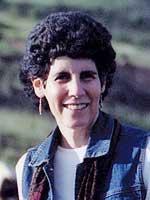
Melissa Fay Greene has always wanted to narrate the audio editions of her books but has learned that publishers have a different perspective. “I auditioned for LAST MAN OUT,” she says. Instead of being hired to read the chronicle of 19 coal miners who survived nine days trapped in a mine collapse only to become a centerpiece in the battle to desegregate the South, Greene received a “funny response. We laughed about that response for a long time. They said it was something better than the mediocre performances many authors turn in, but still not at a professional level.”
Terry Gross
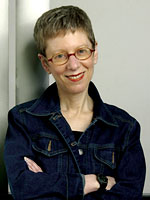
For long-running NPR “Fresh Air” host and Peabody Award-winning interviewer Terry Gross, it’s all about the voice.
Sara Gruen

The animal that Sara Gruen is most associated with is a pachyderm. Next to that might come bonobos. In her most recent book, however, the author of the bestsellers WATER FOR ELEPHANTS and APE HOUSE has placed a mythological creature at the center of her plot. That would be the Loch Ness Monster.
In AT THE WATER’S EDGE, published earlier this year, a Philadelphia socialite named Maddie Hyde accompanies her husband, Ellis, and his best friend to Scotland to search for Nessie (as the monster is often affectionately called) in 1944, as WWII rages around them. The men have been excused from military service for medical reasons, and the trip is intended to vindicate Ellis’s father, who several years earlier was accused of passing off fraudulent photographs of the monster as real ones. The horrors of war, class differences, friendship, and romance are among the issues Maddie faces.
Joel ben Izzy
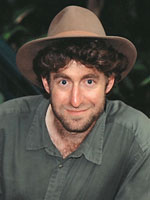
In 1997, renowned storyteller Joel ben Izzy was diagnosed with thyroid cancer. He was successfully treated, but the surgery left his vocal chords permanently damaged. Finding himself without a voice hit him especially hard because, after graduating from Stanford in 1983, he had crafted a successful career as an international storyteller, teaching and telling stories throughout Europe and in Asia. In 1992 his live recording Stories From Far Away won a Parents’ Choice Gold Award and was chosen as an ALA Notable Recording. Four more recordings followed.
Michael C. Keith
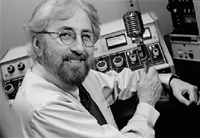
Michael C. Keith of Boston College writes mostly about the subject he lectures on, broadcast media—especially radio. Autobiography is a departure for him. As he says, “I knew I had a very different story about childhood to tell” when he decided to pen a memoir, the recently released THE NEXT BETTER PLACE. And he was right. Staring in 1959 at the age of 11, he ventured forth upon a nomadic, picaresque existence across the U.S. with his penniless, irresponsible, and alcoholic father.
Stephen King & Stewart O'Nan
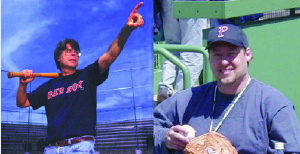
Stephen King’s friendship with Stewart O’Nan was born out of a literary dispute. Nine years ago, O’Nan wanted to title his third novel DEAR STEPHEN KING.
Beau L'Amour
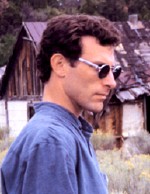
Like his father before him, Beau L'Amour is a master of detail. Louis L'Amour's legendary and persistently bestselling body of work created a lasting and convincing sense of authenticity by getting the details just right. And it's in the details that one finds good audio drama.
Tom and Ray Magliozzi
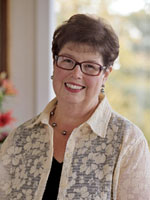
"Car Talk." It began in 1977 as a call-in show done pro bono for WBUR in Boston and has grown into an international phenomenon with 4.4 million weekly listeners on 588 radio stations. For those who have never heard "Car Talk," imagine Three Stooges Moe and Shemp with grease stains and master's degrees. Listeners call with various car-related problems, and the boys try their hand at helping them out, with hilarious and surprisingly astute results.
Barbara McBride-Smith
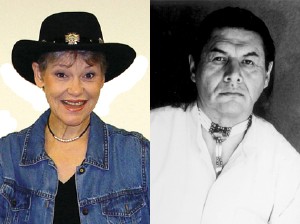
It's no surprise that two of America's outstanding storytellers came by their talents honestly: through their families. After all, the oral tradition preserved history long before books as we know them were born.
Denise Mina
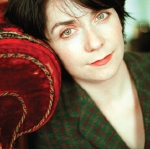
There’s a reason Denise Mina’s stories about crime-busting newspaper reporters in 1980s’ Glasgow sound authentic: She’s heard reporters’ stories firsthand. And, considering the Scots writer’s success with novels like FIELD OF BLOOD and THE DEAD HOUR, it’s hard to believe that she was ever anything but a successful writer.
Renee Montagne
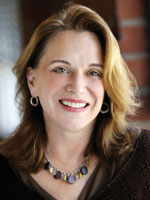
National Public Radio’s (NPR) Renee Montagne says a new collection of stories, interviews, and commentaries celebrating the fortieth anniversary of NPR depicts every kind of story listened to by over 26 million people each week. Each decade of NPR: THE FIRST FORTY YEARS is hosted by the very familiar voice of an NPR professional: Special Correspondent Susan Stamberg; Noah Adams and Guy Raz, both hosts of “All Things Considered;” and Montagne herself, co-host of “Morning Edition.”
Audrey Niffenegger

Moviegoers stood in line earlier this year to catch the film adaptation of Audrey Niffenegger’s THE TIME TRAVELER’S WIFE, but its creator wasn’t among them. That’s surprising for the visual artist who originally planned the book as a graphic novel. She says she was advised that it was best to set aside her interest when she sold the film rights. “It’s great for book sales,” she adds, a fact borne out by its reappearance on bestseller lists five years after its release.
Michele Norris
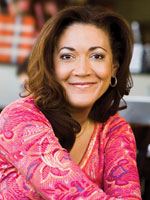
In the new collection of radio news stories NPR AMERICAN CHRONICLES: CIVIL RIGHTS, all the bold-face names are represented--Martin Luther King, Jr., Rosa Parks, Malcolm X, and others--but the most moving moments come from details of what life was like in the segregated South during the Civil Rights Movement of the 1950s and ‘60s.
Joyce Carol Oates

"Audiobooks are wonderful inventions," says the award-winning author Joyce Carol Oates. "People are often so enthralled by them that they’re disappointed when their trips end. I’ve often sat in our driveway listening to the ending of something—reluctant to break the spell. Obviously, we all love to be told stories, especially by skilled professional storytellers."
Paula Poundstone
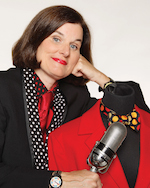
It’s a rare gift when a comedian who makes you laugh also makes you think. Paula Poundstone is a stand-up comedian known for her pithy humor. She’s also an author, an actress, a mom, and a sometimes audiobook narrator. (She narrated her 2007 memoir, THERE’S NOTHING IN THIS BOOK THAT I MEANT TO SAY.) In addition to being a frequent panelist on NPR’s weekly news quiz show, “Wait, Wait . . . Don’t Tell Me,” she recently served as emcee for the 2016 Audie Awards. “I had a great time. It was really fun. I knew almost zero about the organization itself, so I could ask the audience a lot of questions.” She tells us, “I love talking to the audience. You don’t know what they’re going to say.”
Joe Richman
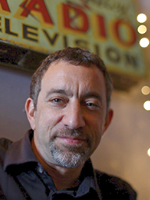
Women pilots of World War II, an undocumented worker who crossed the Rio Grande as a child, an unwed teenaged mother. Throughout his long career as a producer for National Public Radio and with his own nonprofit production company, Radio Diaries, Joe Richman has sought to give those with very little voice in society a voice.
Scott Simon
Scott Simon talks for a living, so one might think that narrating the audio version of his most recent book would be a cinch. But the longtime National Public Radio reporter and host of NPR’s “Weekend Edition Saturday” discovered that reading a memoir aloud brought special challenges as well as pleasures.
The book blends the life story of Simon’s mother, Patricia Lyons Simon Newman, a lively, lovely, and wise former showgirl; Simon’s remembrances of growing up as her son and acolyte; and a description of their final week together as she lay dying in a hospital intensive-care unit.
Lee Smith
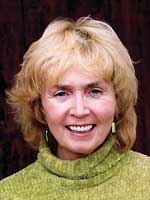
Although award-winning author Lee Smith doesn’t write specifically for audio productions, listeners probably don’t believe that. It’s not surprising that her
novels sparkle when recorded because auditory elements are crucial to her process.
Amy Stewart
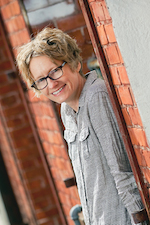
Listening to one of her books on audio used to make Amy Stewart cringe. She could only bear to hear a “snippet” before turning them off. The fault wasn’t the audiobooks--“they were great.” Instead, the author of six critically acclaimed nonfiction books, including FLOWER CONFIDENTIAL and THE DRUNKEN BOTANIST, says it was her writing. “I’d want to change every other line.”
And then Christina Moore became the narrator of Stewart’s first novel, GIRL WAITS WITH GUN, which is based on the real life of Constance Kopp, one of America’s first female deputy sheriffs.
Calvin Trillin
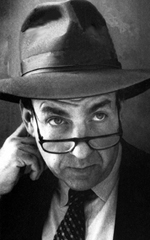
Audiobook fanatics are often forced to choose between authenticity and excellence. Do they prefer a writer/reader or a talented actor? With Calvin Trillin as narrator, they can have their cake and eat it, too. Or rather, their fish brain soup,
since Trillin is a gourmand. Or their duck tongues. “I hadn’t even realized that ducks had tongues,” admits Trillin, in a voice that finds humor in every straight line.
Susan Vreeland
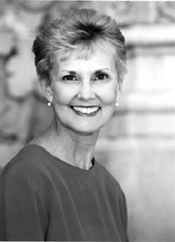
Susan’s Vreeland’s love for the world of art began early. “It started when I was about 8 years old when my step-grandfather came to live with us. We had an art studio for him in the backyard, where I would watch him paint. I remember one day he took my hand in his gnarled, spidery one, and together we painted a watercolor of a calla lily.” That moment, she says, created a passion for painting and sculpture that she nurtured during 30 years as a high school English teacher. The idea for Vreeland’s first novel about art, Girl in Hyacinth Blue, came as she was developing a collection of short stories, each written from the point of view of a character peripheral to an artist: Monet’s gardener at Giverney, for example, and a girl whose back is turned toward the viewer in a Vermeer painting. Imagining the girl to be Vermeer’s daughter, Vreeland wrote a short story that became a critically acclaimed novel.
Neale Donald Walsch
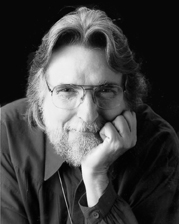
Few modern writers have had more influence on popular thinking about God than Neale Donald Walsch. CONVERSATIONS WITH GOD, Books 1, 2 and 3, published in 26 countries, reveal a God who is loving, knowable, understanding of our weaknesses, and, most important, easy to talk with. Walsch’s dialogue started during a time in his life when accumulated losses and failures made him want to “leave this planet.” In soul-searching anguish at 4:15 one morning, he started writing “How do you make life work? What have I done to deserve such continuing struggle?” To his surprise, his pen started writing answers that he grew to understand were from God and destined to be shared with the world.
Garry Wills
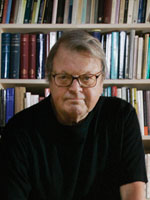
Garry Wills may be the only man ever to choose THE HISTORY OF THE DECLINE AND FALL OF THE ROMAN EMPIRE as a workout tape. But he did and has fond memories of running to the prose of Edward Gibbon while on vacation in Mexico.
Gabrielle Zevin

Gabrielle Zevin’s newest adult title is about an opinionated independent bookseller. THE STORIED LIFE OF A.J. FIKRY has won acclaim from reviewers, indie bookstore owners, and anyone who loves stories about stories.
Zevin’s many fans include Scott Brick, the narrator of the audio production. “I was stunned by the experience of narrating the book,” he says. “It drew me in from the first page. It’s the kind of book that I might ordinarily find myself finishing after only three days in the studio, yet I found myself stretching it to four, then five, simply because I hated the idea of it being over. I wept while recording it--more than once.”
The latest audiobook reviews, right in your inbox.
Get our FREE Newsletter and discover a world of audiobooks.

AudioFile Newsletter
Let us recommend your next great audiobook!
No algorithms here!
We pick great audiobooks for you.
Sign up for our free newsletter with audiobook love from AudioFile editors.
If you are already with us, thank you! Just click X above.



